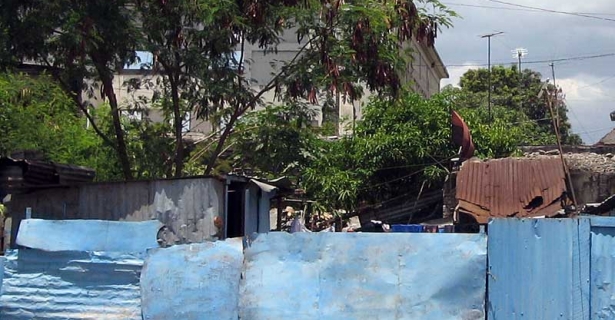Morgan Babbs will be a junior this upcoming semester, majoring in International Relations.
Where I come from, I get charged for plastic bags when I shop. Now I’m in a city that’s fair to say has been completely frozen for 31 years.
No one goes to Managua and no one likes Managua. Managua is always the first chapter in travel guides on Nicaragua. After listing the 3 or so “places” to “visit” and explaining how to not get robbed and kidnapped by cabs, it tells you to get out. There are no travel blogs about Managua. Managuans who can afford it leave the city every weekend.
I asked my Canadian coworker if she liked Managua—she hesitated, as if she didn’t want to give me the truth, but gave the country its deserved credit by answering: “I like Nicaragua…”
A traveler who flocks to the beaches and surf in Nicaragua remarked “hah, Managua, that’s the ugliest city in the world!”
When one of my coworkers was talking to me about his background and living in Managua he said that he liked the city because there was tons of stuff to do. Immediately I excitedly asked him to tell me about all of the stuff, which is when he realized he was misunderstood: “Oh, no, not fun things, I mean like things to do to improve Nicaragua, lots of development work… that sort of thing”.
Managua has been stuck and helpless since the earthquake in 1972 that destroyed the entire city—since then, it has never rebuilt. At all. In fact, it’s sad that I’m even writing this sentence: all (4? 12? 10?) articles and travel guides about Managua open with that same earthquake fact, almost showing that all there is to know about the capital city of the largest and safest Latin American country is that it’s characterized by destruction.
I would think that Managua would be flocked with urban planning visionaries—it’s the perfect basket case. However, there have been no major improvements or changes in the past 30 years, except the addition of Galerias Santo Domingo, the pride and joy of Managua—a mall. In an analysis by McKinsey&Company showing global cities of the future and projected growth rates of cities, Managua doesn’t even make the chart. Nicaragua has illegally had the same president (Daniel Ortega) serve two terms. He’ll likely serve a third by just “saying so” and no one will care. There are no street names or numbers in Managua—you find destinations by mentioning to the taxi driver another restaurant that’s close to the restaurant you’re actually trying to go to or by mentioning another building that’s close to the building or house you’re actually trying to get to… and then saying how many meters or blocks north, south, east, or west the destination is. But this doesn’t even work. You then spend 3 minutes driving around the block looking for the place in the dark. The tallest building in Managua is six stories high. Starbucks, in all its corners of the cities of the developing world, hasn’t even come to Managua. Half the buses in the city say “Russia Nicaragua” (no punctuation between!) which makes ZERO sense when you try to think really hard about what this means and what the connection between Russia and Nicaragua is… until someone informs you that Russia gave Nicaragua those buses. Half of the bridges in the country say “Japan Nicaragua,” which I’ll take a guess means that Japan gave Nicaragua the bridges…
Nicaragua has two competing mobile phone carriers: Claro and Movistar. Perhaps the most illogical thing ever is that it costs more to make a call between a Movistar phone and a Claro phone than it costs to make a call from the United States to Nicaragua. Reread that sentence again if necessary. This means that many people have two phones—one for their Movistar friends and one for their Claro friends. Some people even have three phones—the third for Internet. What?
I’ve only been here for a week and have duly noted the illogicalities of the city, but I look forward to finding the tasteful, quirky aspects of Managua. It’s an odd task to try to get to know a city that doesn’t have much to show for. I am also very happy to have added to the Internet’s plethora (kidding) of blog posts on Managua—hopefully this will help someone who was in the same place I was a month ago: desperate for word on a city that has nothing to say.

